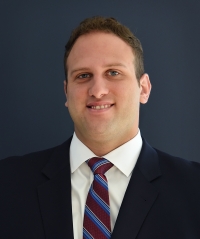The Federal Trade Commission’s Proposed Ban On Non-Competes
Written by Patricia CollinsReprinted from the February 10th edition of The Legal Intelligencer. (c) 2022 ALM Media Properties. Further duplication without permission is prohibited.
On January 5, 2023, the Federal Trade Commission (“FTC”) proposed rules imposing a broad restriction on non-competition agreements (“Proposed Rule”). The Proposed Rule would require employers to rescind existing non-compete agreements, and would preempt conflicting state laws. The ban marks a dramatic change not only in the law, but in the relationship between employers and their key employees.
The Proposed Rule defines “non-compete clauses” as follows: any agreement that prevents a worker from seeking or attempting to seek employment with any employer; or, any agreement that is a de facto non-compete clause. A de facto noncompete clause has the “effect of prohibiting the worker from seeking or accepting employment.” The Proposed Rule provides examples of a de facto non-compete clause: a non-disclosure agreement drafted so broadly that it effectively precludes the employee from working in their chosen field; or a contractual term that requires the employee to pay the employer or a third party its training costs if employment terminates within a specified time period, but only where the payment is not reasonably related to the actual costs incurred by the employer.
The Proposed Rule mandates that it is a prohibited unfair method of competition to enter into or “attempt to enter into” a noncompete clause with an employee, or to maintain an existing non-compete agreement, or to represent to an employee that they are subject to a noncompete without a good faith basis to believe they are.
Two partners of Antheil Maslow and MacMinn, LLP were honored with awards at the Bucks County Bar Association’s annual meeting on December 1, 2022.
Joanne M. Murray, a partner and chair of the Firm’s corporate and real estate practice group, received the prestigious 2022 Harriet M. Mims Award. The award is named after Harriet Mims, who was the first female judge in Bucks County and one of the first women admitted to the Bucks County Bar. The award is presented annually to a female attorney who exhibits the characteristics of strength, leadership and integrity who also has served as a mentor to young lawyers. In addition to her career as a preeminent business and corporate attorney, Ms. Murray is an active member of the local charitable community, serving as President of the Board of National Alliance on Mental Illness, Bucks County. She also serves on the Board of the Doylestown Health Foundation and was recently elected to the Boards of the Bucks County Bar Association and the Central Bucks Chamber of Commerce. Ms. Murray is a Past President of the Bucks County Bar Association and previously served on the Board of the Village Improvement Association of Doylestown, the Bucks County Children’s Museum, and various other local nonprofit boards. She was named a 2022 SuperLawyer by Thomson Reuters.
Elaine T. Yandrisevits, a partner in the firm’s Estates and Trusts practice group, received the President’s Award from outgoing BCBA President Julie D. Goldstein, recognizing dedicated service to the Bar Association, its committees and commitment to the development of the Bucks County legal community. Elaine Yandrisevits focuses her practice on estate planning, trusts and estate administration and Orphans' Court litigation, and has a great deal of practical experience with special needs trust planning and guardianships. Ms. Yandrisevits is active in several committees and sections of the Bucks County Bar Association. She will serve as Chair of the Young Lawyers Division and Chaur of the Orphans’ Court Section in 2023, and previously served as the 2022 Bench Bar Conference Committee Chair. She is also active in the Member Services Committee of the Bar Association. Ms. Yandrisevits was named a 2022 SuperLawyer Rising Star by Thomson Reuters.
The Trafficking Victims Protection Act and Liquidated Damages Provisions in Employment Agreements
Written by Patricia CollinsReprinted with permission from the October 14th edition of The Legal Intelligencer. (c) 2022 ALM Media Properties. Further duplication without permission is prohibited.
Employers eager to recapture the costs of hiring foreign citizens often use damages or repayment provisions in employment agreements. A recent case in the Southern District of New York illustrates a challenge to that strategy. The Southern District’s recent decision in Baldia v. RN Express Staffing Registry LLC to allow a complaint under the federal Trafficking Victims Protection Act (“TVPA”) to proceed, is part of a growing trend in using the TVPA to challenge such agreements.
The plaintiff in the Baldia case, Marie Alexandrine Baldia, is a citizen of the Philippines. RN Express Staffing recruited her from the Philippines and hired her as a registered nurse supervisor after sponsoring her visa to work in the United States. Baldia signed an Employment Agreement for a three-year term, that included a liquidated damages provision. Specifically, the Employment Agreement required that in the event Baldia left the employ of RN Express Staffing, “without cause”, before the end of the three-year term, she would need to repay the costs of “recruiting, training and placement”. The Employment Agreement recited that the “Company Recruitment Costs” totaled $33,320, and that the number would be reduced after her first full year of employment.
AMM family law attorney Melanie J. Wender will join the faculty for a virtual continuing legal education program for National Business Institute on Thursday, November 3rd.
The program, Legal Obstacles to Adoption, gives an overview of the top pitfalls one may come across during the adoption process. The faculty will focus on providing insight on how to deal with prominent hurdles such as termination of parental rights, interstate adoptions, and contested adoptions.
Melanie Wender is a dedicated and supportive advocate for individuals and families facing the sensitive issues involved in family law matters. Ms. Wender focuses her practice exclusively in all aspects of divorce and family law. She is also experienced in adoption issues and has assisted many clients in making this life-changing process as seamless and smooth as possible, allowing the family to focus on welcoming their new child.
Peter Smith and Lisa Bothwell, corporate attorneys with Antheil Maslow & MacMinn, LLP, will present a continuing legal education program at the Bucks County Bar Association’s Business Law Symposium on Tuesday, October 25th in Doylestown. The Business Law Symposium includes three presentations related to corporate governance, business real estate transactions and equity financing for the general practitioner. Mr. Smith and Ms. Bothwell will cover “LLC Operating Agreements: The Good, The Bad, and the Ugly” for one substantive credit. To register, visit the Bucks County Bar Association Website.
Peter Smith is a Partner at AMM’s business & finance practice group, along with Lisa Bothwell their practice focuses on providing guidance to business owners regarding the full range of legal issues including corporate governance, business transactions, mergers and acquisitions, contracts, commercial finance, debtor/creditor relations, and business disputes. To learn more about Peter Smith, Lisa Bothwell or Antheil Maslow & MacMinn’s Business Law practice, visit ammlaw.com/business&finance.
Coming Soon: Beneficial Ownership Reporting Requirements for Small Businesses
Written by Joanne MurrayOn January 1, 2021, Congress enacted the Federal Corporate Transparency Act (the “CTA”), pursuant to which a secure database will be established to assist law enforcement agencies in combatting money laundering, financing of terrorism, and other illegal activities. The objective of the CTA is to prevent bad actors from using shell companies to obscure the provenance of their ill-gotten gains.
The database will be administered by the Financial Crimes Enforcement Network (“FinCEN”), an agency of the U.S. Department of Treasury. Companies will be required to provide information relating to their beneficial owners (generally, individuals owning 25% or more) and persons who are in control (generally, individuals holding significant decision-making authority). There are exceptions, such as publicly traded companies, companies with annual gross receipts exceeding $5 million that have more than 20 full-time U.S. employees and a physical office in the United States, and companies already subject to Federal government oversight (e.g., banks).
Peter Smith, corporate attorney and Partner of the law firm of Antheil Maslow & MacMinn, LLP co-presented a virtual program “Shareholders’ Agreements: the Good, the Bad and the Ugly” hosted by Kreisher Miller’s Center for Private Company Excellence. Thomas Yankanich, CPA and Brian Kitchen, CPA, both Directors of Kreisher Miller, also presented at the program on Tuesday, August 23rd.
This informative presentation aimed at private business owners outlined the importance of shareholders’ agreements in determining the market for the company’s shares; how the shares will be valued; what events trigger a transfer of the company’s shares; along with many other key factors affecting the company, shareholders and their families, and employees.
Kreisher Miller’s Center for Private Company Excellence provides a forum for business owners to interact and network with peers as well as gain access to knowledgeable experts who provide valuable information, tools, and resources to help you navigate these challenges and build your business.
Peter Smith business lawyer and trusted partner to his corporate clients. He has been solving problems and adding value for business owners for over 25 years. Peter’s practice focuses on corporate law, business transactions, mergers and acquisitions, contracts, commercial finance, debtor/creditor relations, business disputes, non-profit organizations, real estate, and trusts and estates.
Click here to learn more about Peter Smith.
Joanne Murray, a Partner of the law firm of Antheil Maslow & MacMinn, LLP, has been re-appointed to the Doylestown Health Foundation Board of Trustees for the 2022 - 2024 term. The Doylestown Health Foundation is the philanthropic arm of Doylestown Health. The Foundation raises funds to support patient care excellence and improve quality of life for the patients and families served.
Ms. Murray practices corporate, nonprofit, health care and real estate law. She chairs the firm's corporate practice group, and is active in a number of community organizations, contributing her extensive knowledge and experience in corporate governance, compliance and risk management to their missions.
AMM Family Law Partner Elizabeth Fineman will serve as a course planner and event moderator for a Pennsylvania Bar Association Continuing Legal Education Virtual panel discussion - "Third Parties in Custody Cases 2022" on Wednesday, August 24th.
This course will examine third parties in custody two years after standing for grandparents and other third parties was changed and expanded. We will look at the law and trends that have emerged in third party custody as well as how the practice has changed as a result of this expansion. Topics include: Standing, Presumptions and Factors, Case law, Trends, Opioid Epidemic and Same Sex Parents, Court Perspective, Therapist/Evaluator Perspective, Attorney Perspective, COVID, Other Situations, Tools and Potential Legislation
Click here to register.
https://lnkd.in/gTkQqzBf
PENNSYLVANIA LIS PENDENS: A SIMPLE BUT OFTEN MISUNDERSTOOD REAL ESTATE & LITIGATION TOOL
Written by Gabriel MontemuroIf you work in the Pennsylvania real estate market, chances are you may have encountered the lis pendens doctrine. Lis pendens is a latin term that roughly translates to “notice of a pending legal action”. As its translation indicates, the purpose of a lis pendens is to give notice to a third-person (typically a potential buyer) that a certain parcel of real estate is subject to a pending lawsuit and that any interest a buyer acquires in that real estate will be subject to the result of the pending legal action.
In its most practical sense, a lis pendens is a written filing indexed against a parcel of real estate such that any potential buyer will be made aware that there is an ongoing dispute relating to title of the property. This effectively precludes a transfer of real property since any potential buyer would then own the property subject to the cloud on title.








